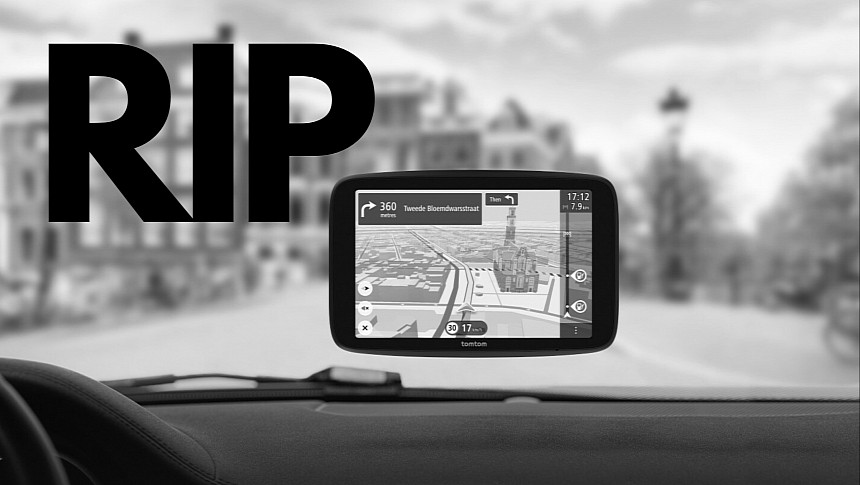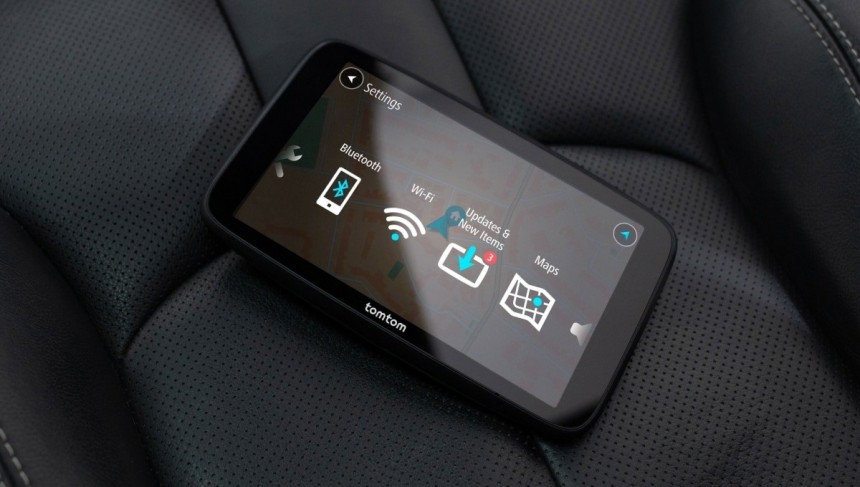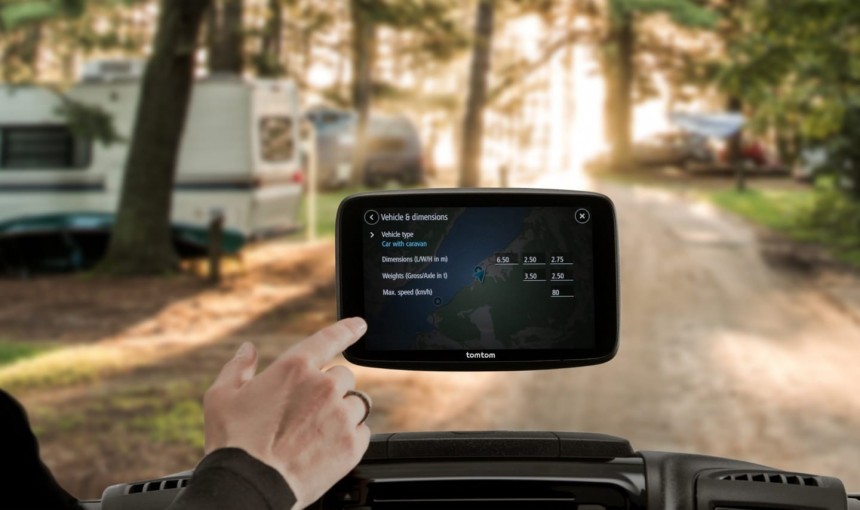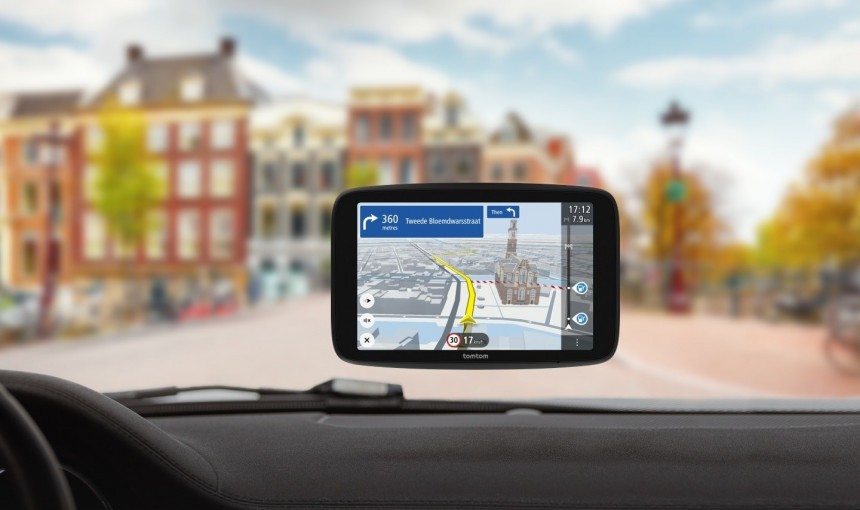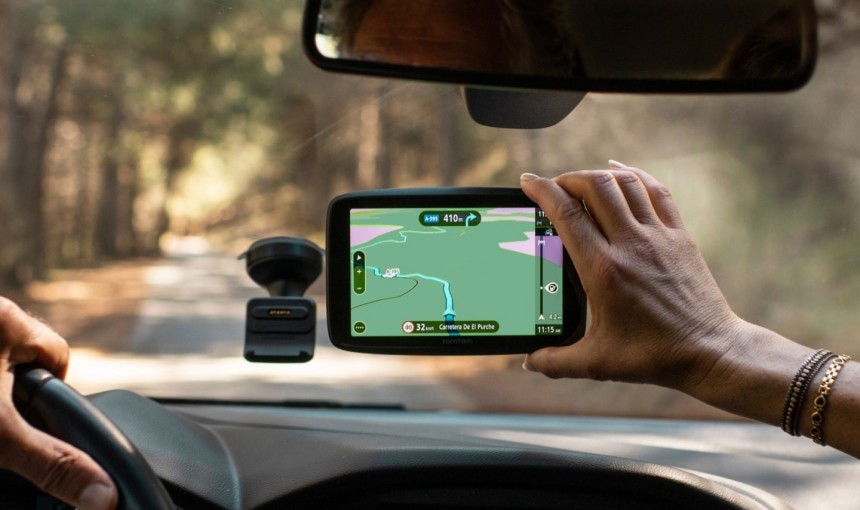The rise of mobile navigation apps, including Google Maps, Apple Maps, and Waze, made it extremely convenient for any driver to get turn-by-turn directions to a configured destination. Most new-generation smartphones come with screens of at least 6 inches, so they can double as a GPS navigator effortlessly.
Users worldwide rapidly joined this trend, giving up on GPS navigators for the added convenience offered by mobile devices.
Smartphone sales are estimated to have reached 1.2 billion devices in 2023, according to Counterpoint Research data, and while the numbers indicate a significant decline from 2022, it's confirmation that almost everybody has a phone in their pockets.
From a convenience perspective, it's much easier to turn to the mobile phone for navigation instead of sticking with a dedicated device. The trend has turned GPS navigators into redundant devices in the last decade, and the last companies are ready to admit defeat in a market losing customer interest.
Not long ago, the GPS navigator space comprised multiple companies, with TomTom, Mio, and Garmin being the biggest names in the market. While none confirmed their change of focus, GPS navigators seem to become second-class citizens in their product lineups. Eventually, at least two companies seem ready to step away from GPS navigators and invest in products that bring home the bacon.
Mio has long been a leader in the GPS navigator world. Its devices are still on sale in many markets across the world, though the most recent two products are already five years old. The company also launched GPS navigators specifically aimed at trucks, but Mio has already become more committed to other product categories, including dash cameras. As a result, navigation devices feel outdated, though the company still promises "lifetime map updates."
TomTom is the company that unofficially admitted defeat in the battle against mobile navigation apps. TomTom is already a leader in the navigation world, though the firm seems to focus more on integrated services powering vehicle navigation rather than dedicated GPS units. TomTom has also launched mobile navigation apps, betting big on its maps as a way to increase its user base.
TomTom has recently stopped selling GPS navigators in the United States. Its products are still available in Europe, but it's unclear if the company is considering a similar decision on the Old Continent, too. TomTom also removed navigation devices from its US website, pointing users to mobile navigation solutions.
Garmin is the only company that launched new GPS navigators in the last 12 months. The company took the wraps off the Garmin Drive 53 GPS navigator in April 2023, trying to build a compelling mix of old-school navigation mixed with new-generation features powered by a connection to a mobile app.
Garmin knows the standard GPS navigator concept is outdated, so it built a mobile companion app that powers additional capabilities, including traffic information and live reports. It's a way to breathe new life into navigation devices, though it's unclear if the strategy makes sense from a financial perspective in the long term.
None of the three companies shared sales figures for their GPS navigator divisions, but it's safe to say they weren't the number one seller in their portfolios.
GPS navigators have already become redundant devices for most drivers but still make sense in a niche that most navigation app developers ignore.
Truck navigation is a market that requires special software capable of searching for routes according to vehicle dimensions and cargo size. Google Maps, Apple Maps, and Waze lack such capabilities, but dedicated GPS navigators with truck navigation, including models from Garmin and Mio, can provide optimized routing by first scanning the vehicle profile.
A truck navigator only suggests routes without truck restrictions and which include roads where a large vehicle would fit. Furthermore, they include a directory of services and parking spaces aimed at trucks, with additional information that makes sense for this vehicle category.
The main benefit of mobile navigation apps is the up-to-date map data, with extras like traffic information and live reports.
While some navigation device makers, including Garmin, tried to deal with this shortcoming by releasing a mobile companion app feeding similar information into their GPS units via Bluetooth, the setup is complicated and doesn't make sense when a smartphone can do this out of the box.
Updating the software and the maps is also a painful process for most GPS navigators. They require a connection to a computer, whereas a mobile navigation app, such as Google Maps, is permanently up-to-date by pulling the information from Google's servers.
Eventually, most drivers don't want to have one more device on the dashboard when their phone is already there. Drivers typically plug in their smartphones while in the car, so having another device just for navigation isn't everybody's cup of tea. People hate cables, and most GPS navigators include small batteries, requiring a permanent connection to a charger to work.
Smartphone sales are estimated to have reached 1.2 billion devices in 2023, according to Counterpoint Research data, and while the numbers indicate a significant decline from 2022, it's confirmation that almost everybody has a phone in their pockets.
From a convenience perspective, it's much easier to turn to the mobile phone for navigation instead of sticking with a dedicated device. The trend has turned GPS navigators into redundant devices in the last decade, and the last companies are ready to admit defeat in a market losing customer interest.
The GPS navigator market
Mio has long been a leader in the GPS navigator world. Its devices are still on sale in many markets across the world, though the most recent two products are already five years old. The company also launched GPS navigators specifically aimed at trucks, but Mio has already become more committed to other product categories, including dash cameras. As a result, navigation devices feel outdated, though the company still promises "lifetime map updates."
TomTom is the company that unofficially admitted defeat in the battle against mobile navigation apps. TomTom is already a leader in the navigation world, though the firm seems to focus more on integrated services powering vehicle navigation rather than dedicated GPS units. TomTom has also launched mobile navigation apps, betting big on its maps as a way to increase its user base.
Garmin is the only company that launched new GPS navigators in the last 12 months. The company took the wraps off the Garmin Drive 53 GPS navigator in April 2023, trying to build a compelling mix of old-school navigation mixed with new-generation features powered by a connection to a mobile app.
Garmin knows the standard GPS navigator concept is outdated, so it built a mobile companion app that powers additional capabilities, including traffic information and live reports. It's a way to breathe new life into navigation devices, though it's unclear if the strategy makes sense from a financial perspective in the long term.
None of the three companies shared sales figures for their GPS navigator divisions, but it's safe to say they weren't the number one seller in their portfolios.
When GPS navigators still make some sense
Truck navigation is a market that requires special software capable of searching for routes according to vehicle dimensions and cargo size. Google Maps, Apple Maps, and Waze lack such capabilities, but dedicated GPS navigators with truck navigation, including models from Garmin and Mio, can provide optimized routing by first scanning the vehicle profile.
A truck navigator only suggests routes without truck restrictions and which include roads where a large vehicle would fit. Furthermore, they include a directory of services and parking spaces aimed at trucks, with additional information that makes sense for this vehicle category.
The cons of using a GPS navigator
While some navigation device makers, including Garmin, tried to deal with this shortcoming by releasing a mobile companion app feeding similar information into their GPS units via Bluetooth, the setup is complicated and doesn't make sense when a smartphone can do this out of the box.
Updating the software and the maps is also a painful process for most GPS navigators. They require a connection to a computer, whereas a mobile navigation app, such as Google Maps, is permanently up-to-date by pulling the information from Google's servers.
Eventually, most drivers don't want to have one more device on the dashboard when their phone is already there. Drivers typically plug in their smartphones while in the car, so having another device just for navigation isn't everybody's cup of tea. People hate cables, and most GPS navigators include small batteries, requiring a permanent connection to a charger to work.
